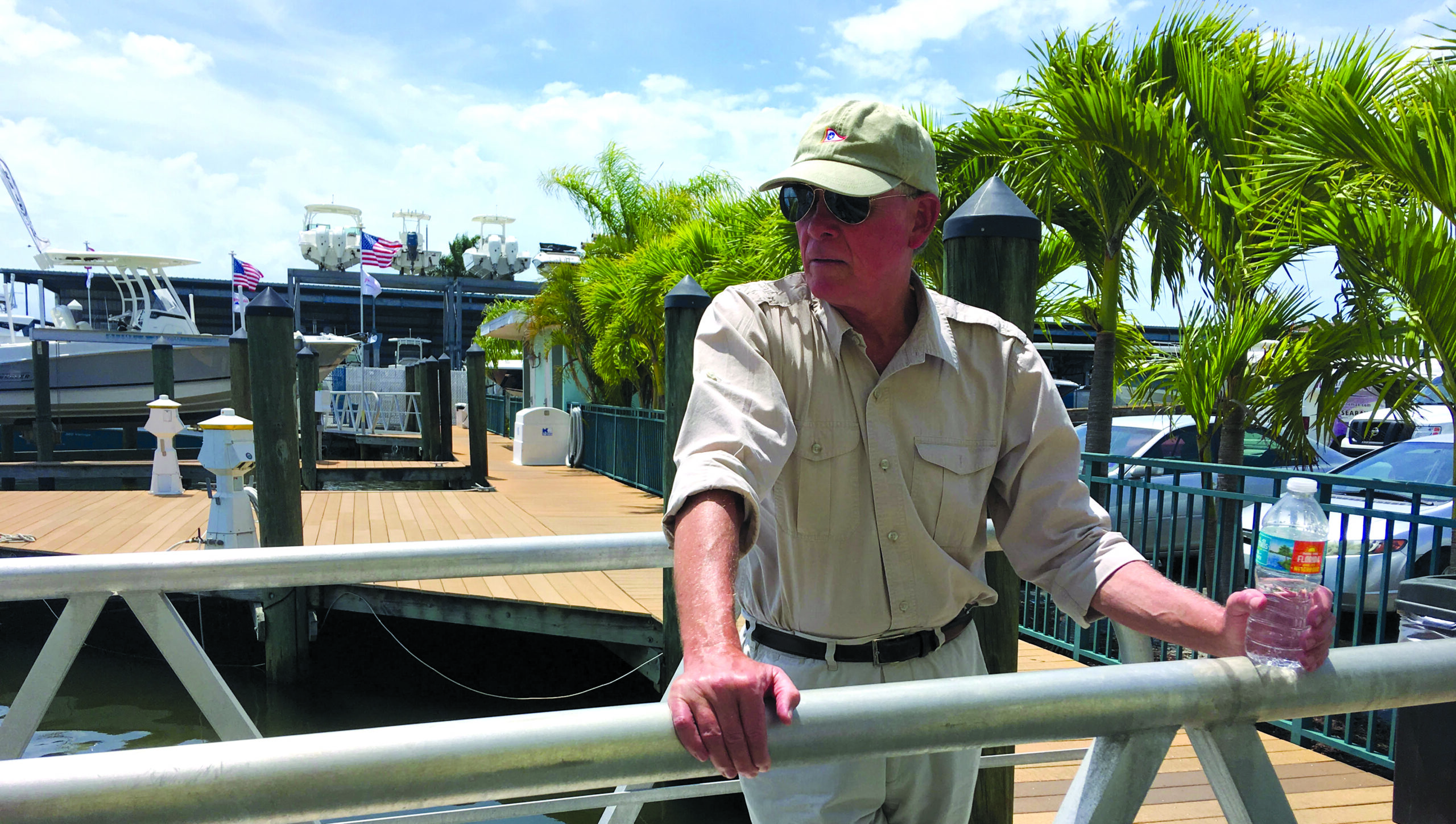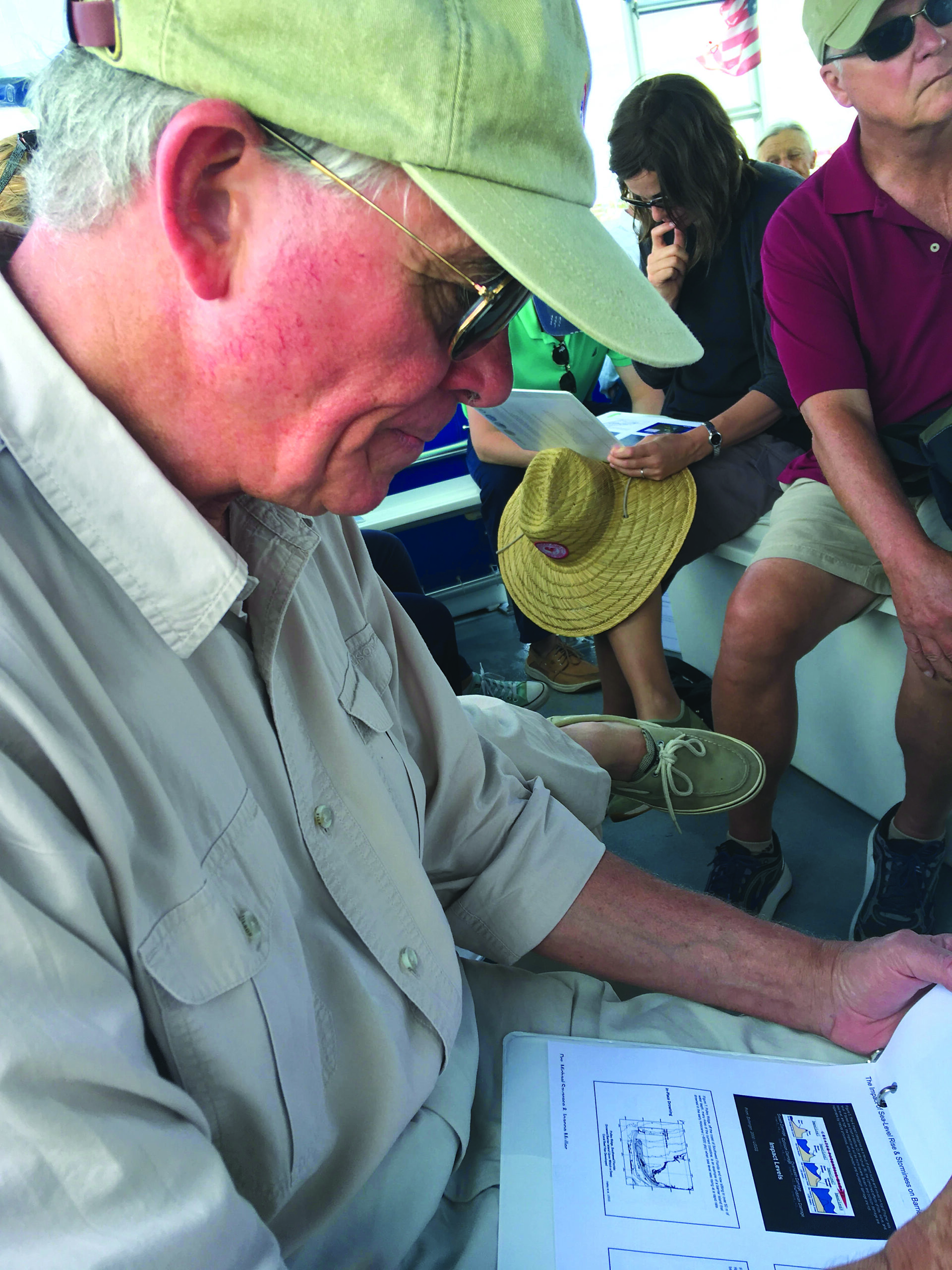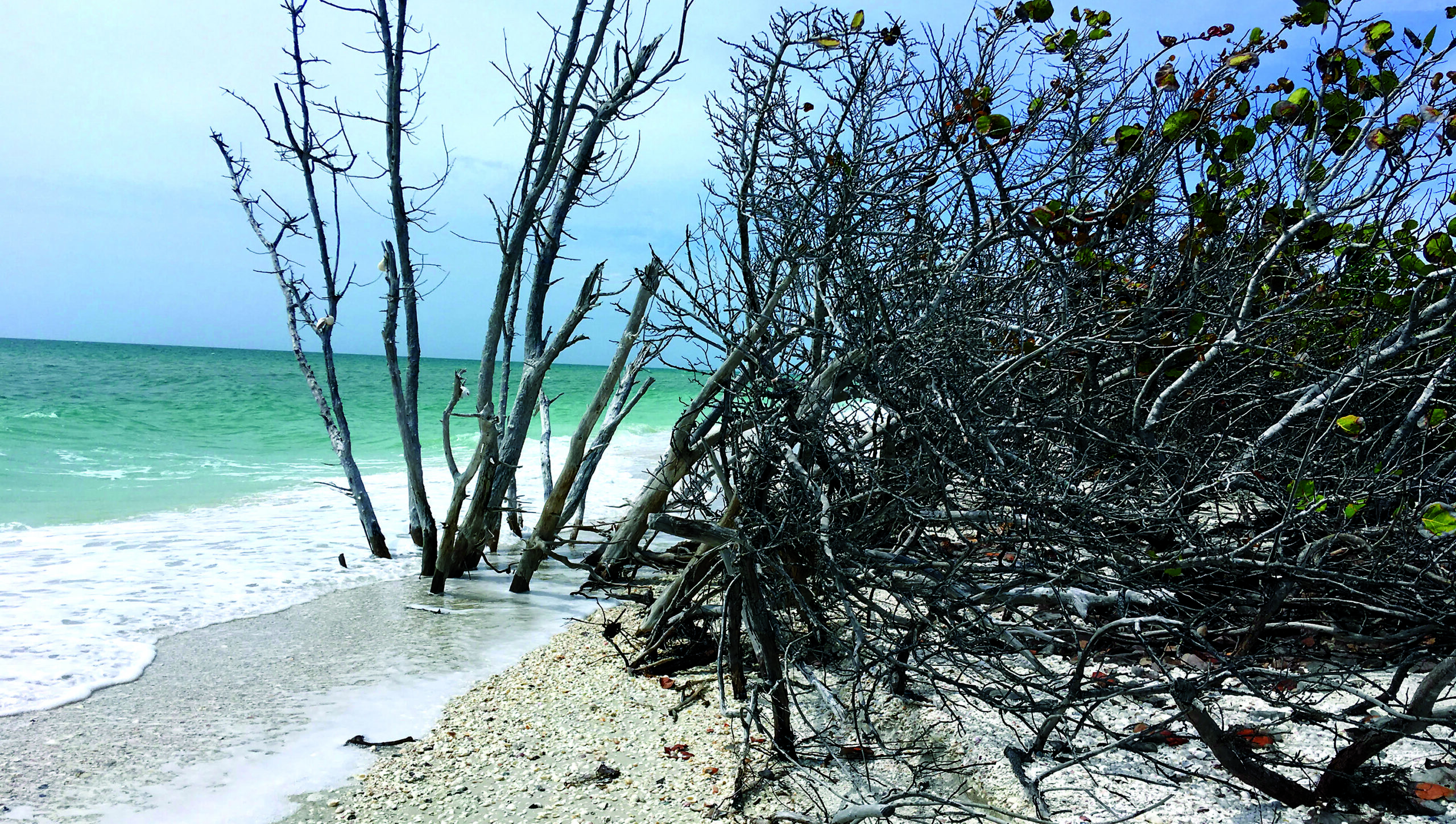NAPLES, Fla. — The leading House Republican proponent of combating climate change is drifting on a pontoon boat far away from Washington, D.C., in Rookery Bay south of Naples, Fla.
Florida Rep. Francis Rooney, who possesses a boat captain’s license from the U.S. Coast Guard, has sailed his family across the Atlantic Ocean, but today he is a passenger with 35 of his constituents — and heaps of Chick-fil-A sandwiches — on a tour of the local effects of climate change, led by scientists from Florida Gulf Coast University.
“These are my environmental supporters protecting me from the wrath of the oil business,” Rooney says of his companions on the boat, a group that includes conservationists, environmentally conscious students skipping school, small business owners, retired CEOs, and fishermen.
Hobbled with a bad knee, pending surgery, Rooney, 65, is seated and thumbing through a binder full of facts about sea level rise and its impact on Keewaydin Island, a state and federally managed barrier island that is the destination of this boat ride.
The barrier island, which protects mainland coastal communities from storms, is retreating, and if sea level rise from global warming continues unabated, it may migrate to higher ground or even drown, exposing residents of Rooney’s conservative southwest Florida district to storm surge.
[Related: Trump takes shot at shareholder climate change advocacy with pipeline order]
“This is a barrier island on the move,” says Michael Savarese, professor of marine science at Florida Gulf Coast University. “The islands are more vulnerable than they’ve ever been.”
Rooney, a millionaire real estate builder before joining Congress in 2017, used to follow the Republican Party line that climate change is real but that it is uncertain if human activity is a contributing factor.

Then he read about the science. Now he’s known for carrying maps of the Everglades and statistics on sea level rise through the halls of Congress to share what he’s learned.
“I’ve been reading a lot about deep ocean heat content,” Rooney interrupts his tour guides, explaining how the warmer waters could lead to more violent storms like Hurricane Irma in 2017, which made landfall a few miles south of his waterfront house. “It’s a complicated issue. I am not a scientist, so I try to read everything I can.”
Rooney’s elevated, Federal Emergency Management Agency-compliant mansion did not suffer much from Irma. But he’s responsive to the concerns of his less fortunate constituents, including small businesses dependent on tourism that have recently dealt with the twin blows of Hurricane Irma and a massive red tide outbreak last year, which some scientists attributed at least partially to warmer waters.
[Also read: AOC blames climate change on capitalism]
“Congressman Rooney is the real deal,” says Julie Wraithmell, executive director of Audubon Florida, who joined Rooney’s boat tour. “This is not greenwashing. He is simply representing the concerns of his district.”
Rooney says it’s not just frontline coastal districts such as his that will feel the impact of climate change, and he’s encouraging fellow Republicans to see what’s happening for themselves.
During the boat ride, Rooney frequently touted polling from the Conservancy of Southwest Florida that he says found 70% of people in Lee and Collier counties, in his district, say the government needs to “do something on climate change.”

“Lee and Collier County are redder than your shirt,” he tells a passenger.
“My district is not moderate,” Rooney says. “The districts that are the reddest and most anti-environment and anti-[acting on] climate change are going to be the ones who suffer the most over the next 30 or 40 years.”
Alex Bozmoski of republicEn, a group that promotes carbon taxes and clean energy technology funding, organized Rooney’s boat tour and aims to do the same for other members.
“In D.C., climate change is hyperpolarized,” Bozmoski says. “The issue feels distant and booby-trapped with controversy and political risk. Out here on the water, with constituents who own businesses and property or who make their living on the coastline, climate change is personal, tangible, and urgent.”
But Bozmoski, addressing the Rooney supporters on the boat, acknowledges the challenge of convincing Republicans who fear inflaming critics in their party, which has long been skeptical of government intervention to address climate change.
“We don’t have a lot of conservative climate change heroes,” Bozmoski says. “The one hero we have is on this boat.”
Rooney says he’s “encouraged” by recent signs that Republicans are proposing their own climate change bills to counter the progressive Green New Deal.
He co-sponsored the Green Real Deal resolution introduced by Rep. Matt Gaetz, a conservative ally of President Trump from the Florida panhandle, which would invest in clean energy research and development and streamline regulations to boost wind and solar.
Rooney notes that Reps. Greg Walden of Oregon and John Shimkus of Illinois, the Republican leaders of the Energy and Commerce Committee, have declared climate change to be a significant problem and are promoting an “innovation” agenda to address it.
But Rooney’s Republican colleagues aren’t where he is.
In November, Rooney helped introduce the first bipartisan carbon tax legislation in nearly a decade with one Republican co-sponsor, Rep. Brian Fitzpatrick of Pennsylvania. The legislation would distribute the revenue from the tax as a monthly rebate to American households, offsetting higher energy costs.
No other Republicans have backed the bill since he reintroduced it this year, and Republican leadership recently spurned Rooney’s bid to join House Speaker Nancy Pelosi’s special select climate change committee.
“What I posit to Republican leadership is, go ask your kids or your grandkids about the environment,” Rooney says. “A lot more people are concerned about the environment and climate change than the conservative political establishment would like to admit.”

Undeterred, Rooney plans to introduce more carbon tax bills this year, including a version previously authored by former Rep. Carlos Curbelo, R-Fla., to replace federal taxes on gasoline, diesel, and aviation fuels with a carbon tax and spend the proceeds on infrastructure improvements.
“There are Republicans warming up to the argument that we need to act to ward off worse things,” Rooney says, noting that a future Democratic administration could impose regulations or mandates like the Green New Deal. “When you think about a carbon tax, that’s the most free-market, least intrusive way to price carbon.”
Rooney insists he’s making headway with convincing Republicans, even President Trump.
While Trump will likely never go for a carbon tax, he did promise funding for the Everglades during a visit this month to Lake Okeechobee. Rooney had previously criticized Trump’s budget request for failing to fund Everglades restoration.
Rooney is also pushing the Trump administration to scale back its proposal to massively expand offshore oil and gas drilling. He has introduced a bill to make permanent a congressional moratorium on offshore drilling in the eastern Gulf of Mexico to protect Florida’s coastline from potential spills and harms to tourism.
“I’ve told Interior officials that Trump won’t carry Florida without the offshore drilling ban,” Rooney says.
Rooney, however, rues that Trump may have other constituencies in mind as he attempts to win reelection in 2020. He wishes Trump “wasn’t so embedded with the coal business,” and he cringes at the president’s mocking of climate change and renewable energy, specifically wind.
“He ought to look at the science and follow the science and take the politics out of it,” Rooney said. “If you follow the science, you will be led to ‘all forms of alternative energy are good.’ The fastest way to decarbonize is to get rid of coal.”
Betty “Cissy” Ramey, a Republican on Rooney’s boat tour who owns a small olive oil shop off Naples Bay, says she will continue to support his climate change advocacy, even if it harms his stature within the party.
“There is not a side with climate change,” says Ramey, lifting her wet pants to her knees after walking through the retreating Keewaydin barrier island. “Anytime you stand up against the current of your party, you’ll have critical constituents. But someone has to be the first voice.”
